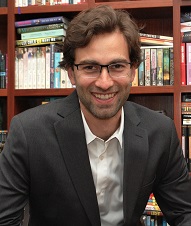Our people
The Executive Committee of the BDRC consists of a diverse range of skilled and experienced researchers, across disciplines, age, gender, career stage, and areas of expertise, led by Director Prof. Anwar Sunna and Deputy Director Dist. Prof. Nicolle Packer. The Executive Committee has an equal gender balance with representatives from Early Career Researchers to Professors, with diverse areas of specific expertise including Medicine, Engineering, Physics, Structural Biology, Genomics, Proteomics, Glycomics, Statistics and Bioinformatics.
Executive committee
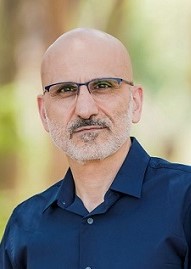
Director, BDRC
Professor Anwar Sunna
Professor Anwar Sunna has been working predominantly in multidisciplinary and industrially-oriented research for the last 15 years, particular in the area of nanobiotechnology and synthetic biology. He is the lead inventor of several innovative techniques with experience in managing transformational research projects. Prof Sunna research is strongly driven by current biotechnological and biomedical challenges, in particular in the area of biomolecule immobilisation and bioconjugation, inorganic materials biofunctionalisation, bioimaging, flow cytometry and pathogen labelling and detection.
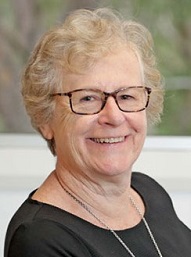
Deputy Director, BDRC
Dist. Professor Nicki Packer
Distinguished Professor Nicki Packer has had an extensive and varied research career in both Chemistry and Biological Sciences. She has gained national and international recognition for her research in glycomics, using proteomics and bioinformatics approaches and linking it to biological functional research. Her current research is in the structure, function, informatics and application of glycans and their conjugates as molecular markers, focussing on their role in cancer, therapeutics and microbial infection. Nicki has published her research extensively and works closely with industry.
BDRC Executive Committee Members
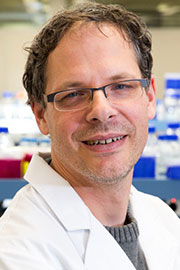
Dist. Professor Ian Paulsen
Distinguished Professor Ian Paulsen is a world leading researcher in membrane transport, microbial genomics, metagenomics, systems biology
and bioinformatics. Prof Paulsen currently holds an Australian Research Council Laureate Fellowship, and has an extensive network of international collaborators. He is the Director of the ARC Centre of Excellence in Synthetic Biology (CoESB) at Macquarie.
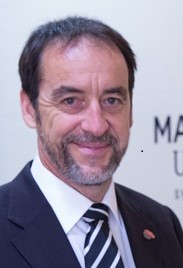
Professor Gilles Guillemin
Professor Gilles Guillemin has been working in the field of Neuroimmunology for approximately 20 years and has made substantial contributions to the understanding of tryptophan catabolism in multiple sclerosis, Alzheimer's disease and motor neuron disease. His team at Australian School of Advanced Medicine (ASAM) is now one of the world’s leading research groups working on neuroactive metabolites (toxic or protective) derived from tryptophan. Prof Guillemin is currently engaged in 33 active national and international collaborations, and has extended his research to other diseases such as depression, autism and brain tumours.

Professor Paul Haynes
Professor Paul Haynes is an expert in plant and environmental proteomics and protein mass spectrometry. Research in his lab focuses on how cells from different organisms respond to the imposition of external stresses. Haynes was Director of the recently completed ARC Training Centre for Molecular Technologies in the Food Industry, and is currently the lead investigator on an ARC Discovery Project. He is Departmental Director of Higher Degree Research, vice president of the Asia Oceania Agricultural Proteomics Organisation (AOAPO), and a member of the ARC College of Experts.
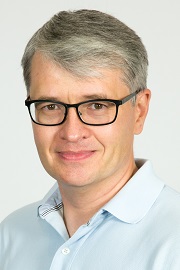
A/Prof Georgy Sofronov
Associate Professor Georgy Sofronov from the School of Mathematical and Physical Sciences develops novel computationally efficient methods enabling large-scale change-point detection for a wide variety of applications in data-intensive science, industry and engineering. Such changes can be important in understanding and monitoring the behaviour of a system, perhaps indicating the boundaries of a gene or a shift in neurological state. His projects involve intensive international and inter-disciplinary collaboration.
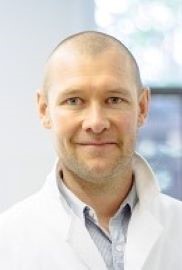
A/Prof Morten Thaysen-Andersen
Associate Professor Morten Thaysen-Andersen leads the Analytical Glycoimmunology group, unique in Australia, which aims to advance our understanding of the human innate immune system and immune-related diseases including microbial infections, inflammation and cancer. The core expertise of his team is to develop and apply novel glycomics and glycoproteomics technologies using advanced mass spectrometry while also drawing on existing analytical tools in protein and carbohydrate chemistry and methods in immunology, structural biology and molecular biology to unravel basic glycobiological processes of the innate immune system.
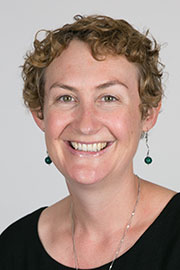
Dr Sasha Tetu
Dr Sasha Tetu is Senior Lecturer in School of Natural Sciences and has over 10 years of experience in the field of Molecular Microbiology. Her research endeavours are highly integrative, combining expertise in molecular biology, microbial ecology, genomics and bioinformatics to address outstanding biological questions. She has established a global reputation in microbial ecology and toxicogenomics through application and integration of ecological principals, ‘omics analyses and molecular biology.

Dr Ming Li
Dr Ming Li is Senior Lecturer in the School of Engineering, and an early career researcher with expertise in collaborative and multidisciplinary research in microfluidics, single-cell analysis and plasmonics, towards applications in point-of-care devices, molecular biosensors and cell manipulators. Ming Lee has expertise in industry research partnership and commercialisation, and is keen to ensure the translation of engineering technologies to understand basic bio-molecular science, and expand relationships with external academic and industry partners. Find out more about Ming's research here.
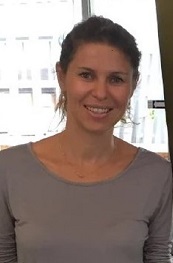
Dr Fleur Ponton
Dr Fleur Ponton is Senior Lecturer in the School of Natural Sciences. Her research has aimed to better understand the network of interactions that defines the relationships between nutrition and infection, integrating the roles of the host microbiota and immunity. She has been working with insect models including Drosophila melanogaster and the Queensland fruit fly Bactrocera tryoni, tractable and powerful invertebrate models to describe nutritional immunology and host-parasite relationships. The methods she has established are of broad interest to numerous research disciplines, spanning from nutrition and life-history theory to public and environmental health.
BDRC Members

A/Prof Mohsen Asadnia
A/Prof Mohsen Asadnia is ARC DECRA fellow and group leader at the School of Engineering. His research interests are auditory and vestibular systems, MEMS/ NEMS bio-inspired sensory systems (flow/pressure/tactile sensors, artificial hair cells of the vertebrate inner ear), chemical sensors (water contamination, explosive gas), and microfluidic devices.

Dr Amy Cain
Dr Amy Cain is a DECRA fellow, who’s research group develops various genomics-based methods to search for new antibiotic targets in nasty hospital pathogens, understand resistance to antibiotic combinations and map molecular responses to environmental stresses in diificult-to-treat bacteria. She also runs the Galleria Facility, an ethical and efficient animal model alternative, useful for testing the toxicity and efficiency of new antibiotics, and assaying the pathogenicity of bacterial strains. Find out more about Amy's research here.
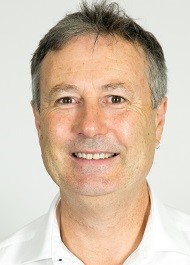
Professor Mark Connor
Professor Mark Connor is a molecular pharmacologist who studies how drugs interact with receptors and signalling pathways to modulate their function. He primarily studies cannabinoids and opioids, both natural products and synthetic drugs. The lab uses high throughput and single cell patch clamp techniques to uncover novel interactions between drugs, G protein coupled receptors and ion channels, especially those involved in the detection and response to noxious environmental stimuli.

Professor Jennifer Cornish
Professor Jen Cornish is a neuropharmacologist and has contributed to the understanding of brain circuitry, particularly the involvement of the neurotransmitters dopamine, GABA and glutamate on regulating brain function using rodent models. In the past few years she has discovered neurotransmitter/neurochemical interactions that regulate behaviours associated with methamphetamine and alcohol use, such as: reward, substance use disorder, psychoses, depression, anxiety and memory function. She is particularly interested in oxytocin and cannabinoids and how they regulate these brain circuit dysfunctions.

Dr Heather Francis
Dr Heather Francis is Senior Lecturer in the School of Psychological Sciences, Macquarie University, and Senior Clinical Neuropsychologist at Royal North Shore Hospital. Her research demonstrates a relationship between Western-style diet and hippocampal function, associated with poorer memory function, recall for amount eaten, ability to detect internal signals of food intake, and poorer inhibition of pleasant food memories under conditions of satiety. She has experience in hospital settings conducting neuropsychological assessment of various neurological conditions. This has informed her research interests in first assessment and remediation of cognitive deficits in acquired brain injury.

Dr Hasinika Gamage
Dr Hasinika Gamage is an early-career postdoctoral research fellow in the School of Natural Sciences. With expertise in gut microbiome studies, she specialises in molecular microbiology, next-generation sequencing, and bioinformatics. Her highly collaborative research focuses on understanding the role of the gut microbiome in health and disease and developing therapeutic strategies to modulate gut microbial populations and their functions. Find out more about Hasinika's research here.
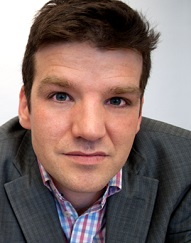
Dr Alf Garcia-Bennett
Dr Alf Garcia-Bennett is Senior Lecturer in School of Natural Sciences. His research centres on the design, synthesis and application of nanoporous silica particles in pharmaceutical science and nanomedicine, with a strong focus on how these novel nanoparticles interact with biological interface. Two strong areas focus areas are understanding the effect of nanoconfinement on pharmaceutical active ingredients, and uncovering the role of the biomolecular corona of nanoparticles on their immune-toxicological properties and potential therapeutic use.

Dr Anna Guller
Dr Anna Guller is a Research Fellow working at Macquarie Medical School. Her field of interest includes the development and validation of innovative treatment and diagnostic modalities based on the interactions between living tissues, physical factors (from gravitation to various electromagnetic phenomena), and new materials (particularly the drug delivery systems and imaging agents). In 2021, Anna started a new project aiming to explore and employ the effects of the strong time-varying magnetic fields on regeneration and tumour growth control.
A/Prof David Inglis
David Inglis is an Associate Professor in the School of Engineering at Macquarie University. His research focusses on micro and nano-fluidics for chemistry, biology, and life science. He is an expert in microfabrication and the movement of particles in micro-scale flows.
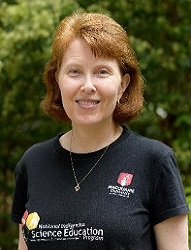
A/Prof Joanne Jamie
A/Prof. Joanne Jamie is a Bioorganic and Medicinal Chemist at the School of Natural Sciences. Her research is focused on collaborative partnerships with Indigenous communities for documentation, biological screening and isolation of bioactive compounds from ‘bush’ foods and medicines and community capability strengthening; the design of radiopharmaceuticals for diagnosis and treatment of cancer and other diseases; and development of STEM educational programs for empowering youth under-represented in higher education.
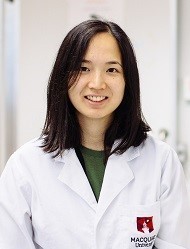
Dr Rebeca Kawahara
Dr Rebeca Kawahara is a Cancer Institute NSW Early Career Fellow (2019-22) in the Glycoimmunology group in the School of Natural Sciences, Macquarie University. Her core expertise is to develop and apply advanced mass spectrometry-based glycoproteomics, proteomics and glycomics to study complex biological systems. Her current research focus is to use integrated multi-omics approaches to advance our molecular understanding of the role of glycoproteins in health and diseases, including cancer and immune-related disorders.
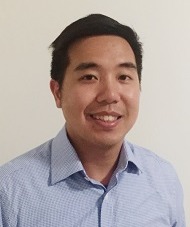
Dr Albert Lee
Dr Albert Lee is a senior lecturer in the Centre for Motor Neuron Disease Research at Macquarie Medical School. His
research uses proteomics to understand the mechanisms of proteostasis dysfunction and the cellular processes that can manifest into neurogenerative diseases.

Professor Benoit Liquet
Benoit Liquet is Professor of Mathematical and Computational Statistics at Macquarie University in the School of Mathematical and Physical Sciences. Throughout his career he has extensively worked in developing novel statistical models mainly to provide novel tools to analyse clinical, health and biological data arising from epidemiological studies. In 2011, he moved to the field of computational biology and generalised some of these methods so that they scale to high throughput (“omic”) data.
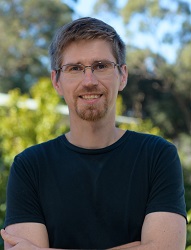
Dr Maciej Maselko
Dr Maciej Maselko is a research group leader and CSIRO Synthetic Biology Future Science fellow in Applied BioSciences at Macquarie University. He is a synthetic biologist with experience working with viral, microbial, plant, and animal systems. Maciej co-founded a start-up based on a method he invented to engineer speciation events in sexually reproducing organisms for transgene biocontainment and pest control. His lab at Macquarie University is focused on developing new genetic methods for pest management and advancing insects as platforms for sustainable waste management, bioremediation, and production of high-value compounds. Find out more about Maciej's research here.

A/Prof Andrew Piggott
A/Prof. Andrew Piggott is a bioorganic chemist in the School of Natural Sciences. His research interests lie at the interface between chemistry and biology, with emphasis on exploiting the extraordinary chemical, biological and structural diversity of microbial natural products for antibiotic drug discovery, and using natural molecules as new drug leads and probes to elucidate biochemical and cellular pathways.
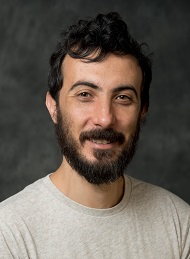
Dr Vince Polito
Dr Vince Polito is a senior research fellow in the School of Psychological Sciences at Macquarie University. His main research focus is developing measures and conceptual frameworks to understand changes in multisensory processing that occur in altered states of consciousness. He has a particular interest in the neurogenerative effects of psychedelics, and is currently investigating the effects of microdoses of serotonergic hallucinogens on a range of psychological measures and omics-based biomarkers. Find out more about Vince's work here.
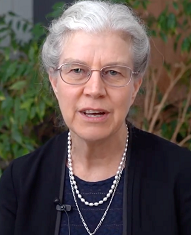
Professor Alison Rodger
Professor Alison Rodger is a biophysical chemist who develops and applies spectroscopic methods to study the structure and function of biomolecules and biomolecular assemblies.
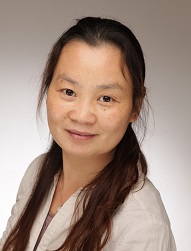
A/Prof Yuling Wang
Associate Professor Yuling Wang is an interdisciplinary scientist, working at the interface of plasmonic nanostructures, surface-enhanced Raman scattering/spectroscopy (SERS), sensor technology, nanobiotechnology and their biomedical applications. Her research focuses on the platform technology that utilizes the rationally designed multifunctional nanomaterials and sensor platform for biomarkers sensing and cancer molecular subtyping, with the aim to enhance the point-of-care and in vitro diagnostics.

